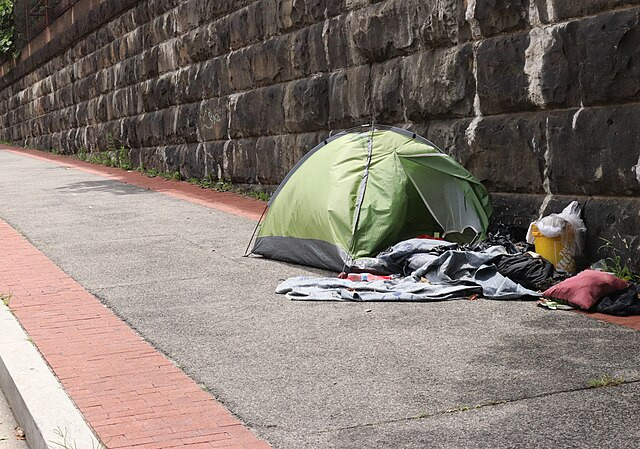Homelessness in the United States has surged by 18% in 2024, marking the sharpest increase in over a decade and spotlighting a growing national crisis. The U.S. Department of Housing and Urban Development (HUD) reported that more than 771,000 people experienced homelessness during the annual count conducted in January, equivalent to 23 of every 10,000 Americans. The findings attribute the rise to skyrocketing housing costs, inflation, natural disasters, and migration pressures, painting a grim picture of the challenges faced by vulnerable populations.
Families with children have been particularly affected, with family homelessness increasing nearly 40% and nearly 150,000 children experiencing homelessness on a single night-a 33% jump from the previous year. The figures underscore the widening gap between available housing and the growing demand, which has left many families without shelter. In contrast, homelessness among veterans continued to decline, dropping by 8% due to targeted federal and local programs.
Natural disasters played a significant role in the rising numbers. The catastrophic wildfire in Maui, Hawaii, in 2023, displaced thousands, with more than 5,200 people residing in emergency shelters during the January count. On the mainland, cities like Chicago and Denver reported increases in homelessness linked to asylum-seekers, further straining their resources. However, both cities have since reported significant declines in their migrant shelter census, with Denver nearly eliminating its system.
HUD Secretary Adrianne Todman emphasized the importance of evidence-based strategies to address the crisis, stating that "no American should face homelessness." She acknowledged that the report reflects conditions from nearly a year ago and noted that efforts are ongoing to address the underlying causes of homelessness. However, advocates like Renee Willis, interim CEO of the National Low Income Housing Coalition, argue that systemic underinvestment in affordable housing remains a critical issue. Willis stated, "Increased homelessness is the tragic, yet predictable, consequence of underinvesting in the resources and protections that help people find and maintain safe, affordable housing."
The issue has also been exacerbated by changes in legal and policy frameworks. A U.S. Supreme Court decision in 2023 allowed cities to enforce bans on public sleeping and camping, leading to stricter measures against homeless encampments in several Western cities. While these policies aim to address concerns about safety and sanitation, critics warn they effectively criminalize homelessness and push vulnerable individuals further into the margins of society.
Despite the overall increase in homelessness, some cities have made progress. Dallas achieved a 16% reduction in homelessness by overhauling its housing system, while Los Angeles reported a 5% decrease in unsheltered homelessness following substantial investments in housing programs. These localized successes highlight the potential for targeted interventions to make a meaningful impact, even as the national crisis deepens.
Racial disparities remain a glaring issue within the homeless population. Black Americans, who comprise 12% of the U.S. population, account for 32% of those experiencing homelessness. Ann Oliva, CEO of the National Alliance to End Homelessness, called for immediate action to address these inequities, emphasizing that "the answer to ending homelessness is ensuring everyone has access to safe, stable, and affordable housing." She urged policymakers to expand resources to assist those struggling to afford rising rents and to prioritize rehousing efforts.
The rise in homelessness stands in stark contrast to years of progress made through federal investments in housing programs. From 2010 to 2017, the U.S. saw steady declines in homelessness, driven by initiatives targeting veterans and vulnerable populations. However, the expiration of pandemic-era measures such as emergency rental assistance and eviction moratoriums has left many households vulnerable to displacement.




